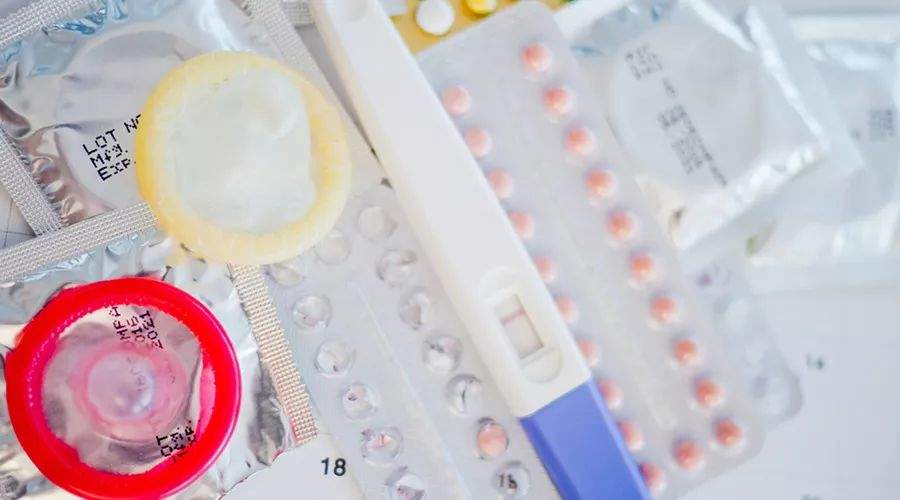
Readers often leave us messages:
Penis, can contraceptives relieve dysmenorrhea?
It is said that taking contraceptives can reduce acne, is this true?
First of all, it should be made clear that the contraceptives mentioned here refer to short-acting contraceptives, not emergency contraceptives taken afterwards. There is a big difference between the two.
Let’s make a comparison.
As for whether short-acting contraceptives can cure acne and relieve dysmenorrhea, you will know after reading it.
ROUND 1: Validity
The overall effectiveness of emergency contraception is only about 80%, and many factors will affect the medication effect.
For example, the medicine is taken more than 72 hours after the event, vomiting occurs within 2 hours after taking the medicine, thus affecting absorption, and other drugs are taken.
Another example is bad luck.
Short-acting contraceptives are much more reliable. If taken strictly in accordance with the drug instructions, the contraceptive effective rate can reach 98% ~ 99%.
ROUND 2: Side Effects

The side effects of emergency contraception are relatively large. Common side effects include nausea, headache, irregular menstruation, etc., which can often cause menstrual disorders for several consecutive months.
The side effects of short-acting contraceptives are relatively small.
It may cause nausea, vomiting, breast pain, headache, dizziness, fatigue, etc., but the general duration is not more than 24 hours.
Individual women will have vaginal drip bleeding after taking drugs, which generally does not need treatment. If they persist in taking drugs for 1-3 months, the symptoms will usually disappear.
ROUND 3: [Additional Features]
The function of emergency contraception is the same as the literal meaning, and it is only applicable to contraceptive needs in emergency situations.
Such as failure of conventional contraception (such as condom falling off), unwanted unprotected sex (such as rape), etc.
Never use it as a conventional contraceptive method.
Short-acting contraceptives not only can realize effective contraception, but also have [additional functions] to deal with some diseases.
Read it silently three times before watching it: if you don’t want to eat it, you need the doctor to judge it first.

1. Irregular menstruation
Starting from the first day of menstruation, take the medicine continuously for 21 days, then stop taking the medicine for 7 days, and then start the next cycle.
Taking short-acting contraceptives in this way can artificially establish a regular menstrual cycle.
2. Dysmenorrhea
It is mainly aimed at dysmenorrhea caused by adenomyosis and endometriosis.
Because the release of estrogen and progesterone from short-acting oral contraceptives can effectively inhibit endometrial hyperplasia and relieve dysmenorrhea symptoms.
3. Polycystic ovary syndrome
Short-acting oral contraceptives can also be used for rare menstruation or menopause caused by polycystic ovary syndrome.
Usually it takes about 3 months to take medicine, and there will be obvious improvement basically.
4. Skin problems
This mainly refers to acne.
Acne is usually associated with high levels of androgen in the body. When the body has abnormal regulation, acne is prone to occur.
Short-acting oral contraceptives can inhibit the secretion of androgen, thus achieving the effect of treating acne.

5. Premenstrual syndrome
Symptoms such as lower abdominal distension, headache and breast distension and pain before menstruation will be significantly improved after short-acting oral contraceptives are used.
6. Menopausal symptoms
The use of short-acting oral contraceptives can effectively relieve a series of symptoms during perimenopause, delay the arrival of menopause, and play a role in protecting cardiovascular system and delaying aging.
See here, many girls are itching?
Don’t rush to buy short-acting contraceptives. Note that it is not recommended for the following people:
Lactating;
Over 35 years old and smoking for a long time;
Hypertension control is not good.
History of deep venous thrombosis or pulmonary embolism;
There is a history of ischemic heart disease, cerebrovascular accident, valvular heart disease with complications, etc.
Have a history of breast cancer;
Complications caused by diabetes, such as nephropathy, retinopathy, nervous system diseases, etc.
Liver disease;
Vaginal bleeding of unknown cause;
Migraine with aura;
Taking antifungal, tuberculosis or epilepsy drugs;
For some reasons, they are unable to move for a long time or have coagulation-related diseases.
If you need it, it is recommended to choose and take it correctly under the guidance of a doctor.
